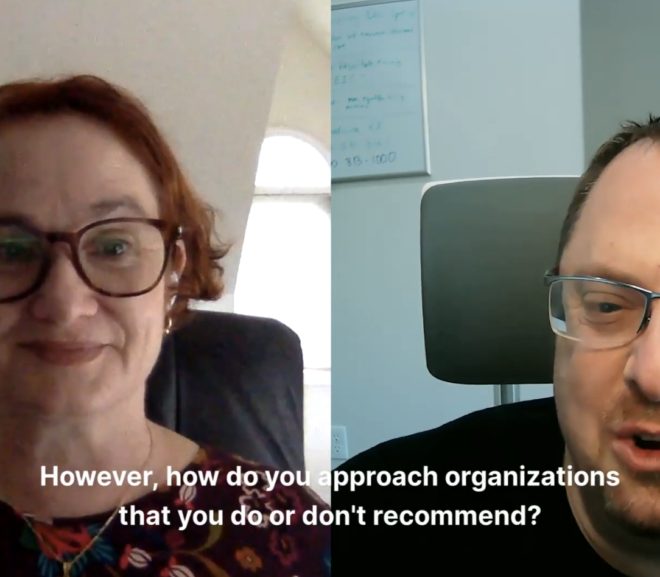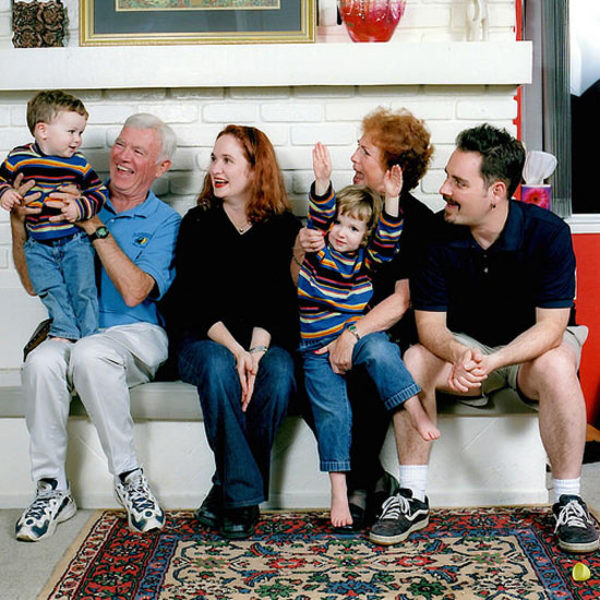At the end of the day, a sensory friendly home life means forget social conventions. Make your home work for you.
Tag: Shannon Des Roches Rosa
Senior editor Shannon Rosa talks with autistic podcaster Shawn Sullivan of Unheard Voices about what we do here at TPGA: Our passion for debunking autism misinformation, boosting neurodiversity advocacy, and fighting for disability rights. Shawn was a gracious host, and Shannon had a lot of opinions—all of which are correct.
Autistic people tend to benefit from acceptance much more than from awareness, as awareness is passive whereas acceptance is a choice. Here are ten ways you can honor Autism Acceptance, and autistic people of all ages.
Shannon Des Roches Rosa twitter.com/shannonrosa I want to make this as friendly as possible, so I think it’s important to start by clarifying terms: Inclusion, my lovelies, is a real and basic human right, and it simply means autistic and other disabled people have the right to be out and about in the world, and not segregated or hidden away as used to be the default for their community members. Inclusion does not mean forcing people like my high-support autistic son to be in places they don’t want to be, that aren’t set up for them, or in which they aren’t welcome. But even when we embrace inclusion as a disability rights baseline, my son still doesn’t get to do all the things—but that’s because of accessibility barriers, not because inclusion itself is a flawed concept. Even though The Americans with Disabilities Act (ADA) installed accessibility as the law of our…
If early intervention professionals truly want to serve autistic children, then they need to transition to better ways to guide our autistic kids, ways that don’t crush those children’s spirits and hearts.
Shannon Rosa from Thinking Person’s Guide to Autism and Corina Becker from Autism Women’s Network interviewed Laura Crane from CRAE, the UK-based Centre for Research in Autism and Education about her work in supporting best practices in health care and education for autistic people, and also demonstrating that Autistics, children specifically, can be reliable witnesses during criminal investigations. Laura Crane | Photo: CRAE [image: Smiling white woman with long brown hair.] Shannon Rosa: Why don’t you start by telling us a little bit about the work that you’re doing for CRAE, because it seems like you’re involved in so many things. Laura Crane: My research focuses on two main areas. The first is looking at how we can support autistic children and adults within the criminal and family justice systems. A lot of that work has come from police officers and barristers and other legal professionals assuming that autistic children and…
I am all about helping parents learn from my mistakes, so they don’t repeat my mistakes. Here are five bonks I made during the early years of parenting my autistic son, and how you can avoid repeating my fails.
This is a mini-guide for parents to think about autistic matters and perspectives they may not know about, and which may help them and their kids live the Best Lives Possible.
If your child has recently been diagnosed with autism, as my son was in 2003, here’s what I want you to know: Learn from me, don’t be me.
Shannon Des Roches Rosa www.squidalicious.com Content note: this article discusses murder, disability, and mental health. There is a horrifyingly typical coupling of devotion with murder, whenever disabled people are the victims. A recent example is Ruby Knox, an autistic young woman, who was murdered by her mother Donella, in Blenheim, New Zealand. Donella drugged Ruby, then suffocated her. Both the reporting and the judge on the case portray Donella as a “loving mum who was driven to kill her daughter.” I’m here to say: Fuck that. I need you — and judges and reporters everywhere — to understand that, however difficult it may be for families to support their disabled loved ones, murder is never excusable. There are always other options. Always. That last message is especially important when you consider that disability-related filicides like Ruby’s are more common than the occasional high-profile story might have one suppose — according to Julia Bascom…









